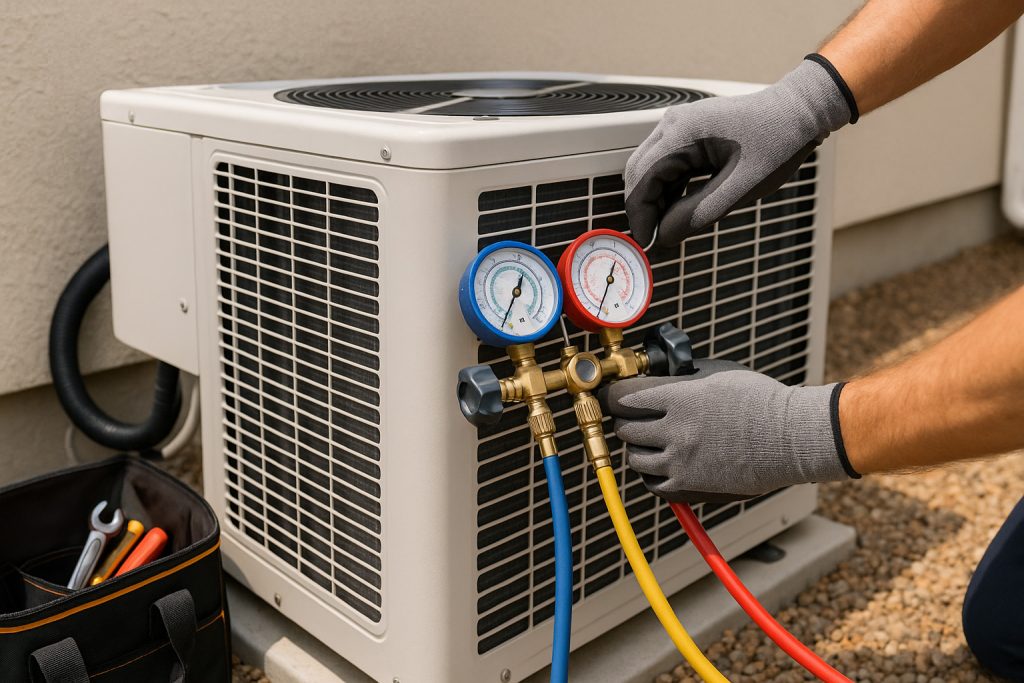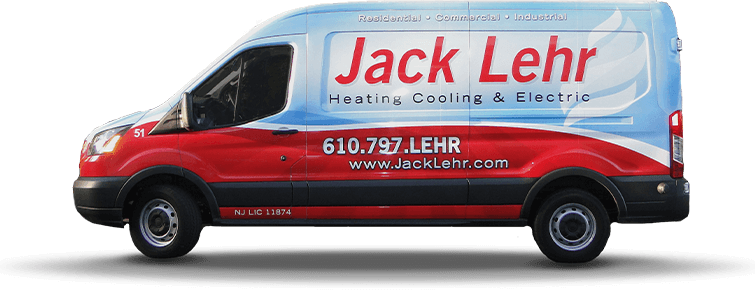When summer temperatures soar to their peak, your air conditioning system is your best friend. But sometimes it just can’t keep up. If you’ve noticed that your home feels warmer than it should or that your AC is not keeping up, you’re not alone.
Many homeowners face this frustrating problem during the hottest days of the year. Understanding why your AC struggles under extreme heat and what you can do about it is key to staying comfortable and protecting your investment.

Why Your AC Fails in Extreme Heat and How to Fix It
1. Your System May Be Undersized
One of the most common reasons an air conditioner struggles to cool your home during peak heat is that it’s simply too small for the space it needs to cool. An undersized system has to work harder and longer to reach your thermostat’s set temperature.
This overworking often leads to continuous running without ever quite achieving the desired comfort level, causing increased wear and tear and higher energy bills. Undersizing can result from changes in your home – such as additions, renovations, or improved insulation – that your original AC unit was not designed to handle.
2. Your AC Is Aging
Air conditioning systems typically last between 10 and 15 years. As your unit ages, its components naturally wear out, and its efficiency declines. Older systems may use outdated refrigerants and lack modern energy-saving features, meaning they can’t keep up with today’s intense summer heat as well as newer models. For many homeowners, the benefits of upgrading HVAC systems outweigh the mounting repair and energy costs of an older unit.
An aging AC might cool unevenly, produce less airflow, or have refrigerant leaks that reduce performance – all of which become more noticeable when temperatures rise.
3. Poor or Irregular Maintenance
Without regular maintenance, even a properly sized and newer air conditioner can struggle in the heat. Dirty filters, clogged coils, low refrigerant levels, and blocked drain lines restrict airflow and heat exchange, forcing your system to work overtime. This not only hampers cooling performance but also increases the risk of breakdowns at the worst possible time.
Signs your AC is struggling include:
- Longer run times
- Uneven cooling
- Higher energy bills
- Frequent repairs
- Thermostat issues
- Strange noises or odors
Cooling Solutions: How to Beat the Heat with Your AC
Here are some steps you can take to boost cooling ability:
- Schedule professional maintenance – The first step to restoring your AC’s peak performance is a thorough inspection and tune-up by one of our licensed HVAC technicians. Maintenance includes cleaning or replacing filters, clearing coils, checking refrigerant levels, inspecting electrical components, and testing system operation.
- Consider upgrading your thermostat – Smart thermostats with programmable or adaptive features can optimize cooling cycles and reduce strain on your system.
- Evaluate your system’s size and age – If your system is undersized, outdated, or constantly needing repairs, it may be time to consider an upgrade. One of our professionals can perform a load calculation to recommend the right size system for your home, ensuring efficient cooling now and for years to come. Knowing the best time to buy AC can also help you save on replacement costs.
- Improve home insulation and ventilation – Simple steps include sealing air leaks, adding insulation, using window treatments or reflective films, and ensuring attic ventilation.
Frequently Asked Questions
Question: Why does my AC struggle during extreme heat?
Answer: On very hot days, your AC may be undersized for the space it needs to cool, be getting old (losing efficiency, airflow, or having refrigerant issues), or suffer from poor upkeep like dirty filters or clogged coils. All these reduce its ability to keep up.
Question: What are signs that my AC is under too much strain in heat?
Answer: Look out for longer-than-normal run times, uneven cooling across rooms, higher energy bills, frequent repair calls, thermostat problems, and odd noises or smells. These indicate that the system is struggling.
Question: What maintenance steps can help my AC perform better in summer heat?
Answer: Regular professional maintenance (filter replacement/cleaning, coil cleaning, refrigerant checks, electrical inspection) helps a lot. Improving insulation, sealing leaks, and ensuring good ventilation also help the system work more efficiently.
Question: When should I consider replacing my AC instead of just repairing it?
Answer: If your unit is old or frequently needing repairs, or if it’s undersized for your current space, replacement may be better. Also consider upgrading if electricity bills are climbing or comfort is compromised despite maintenance.
Question: Can a better thermostat help with cooling performance in hot weather?
Answer: Yes. Smart or programmable thermostats help optimize cooling cycles so the AC doesn’t run more than needed. They can reduce strain by adjusting operation based on patterns, helping maintain comfort more efficiently.
Find professional AC services at Jack Lehr, the HVAC company your neighbors have trusted for years.

